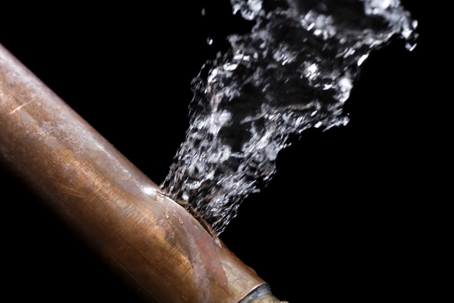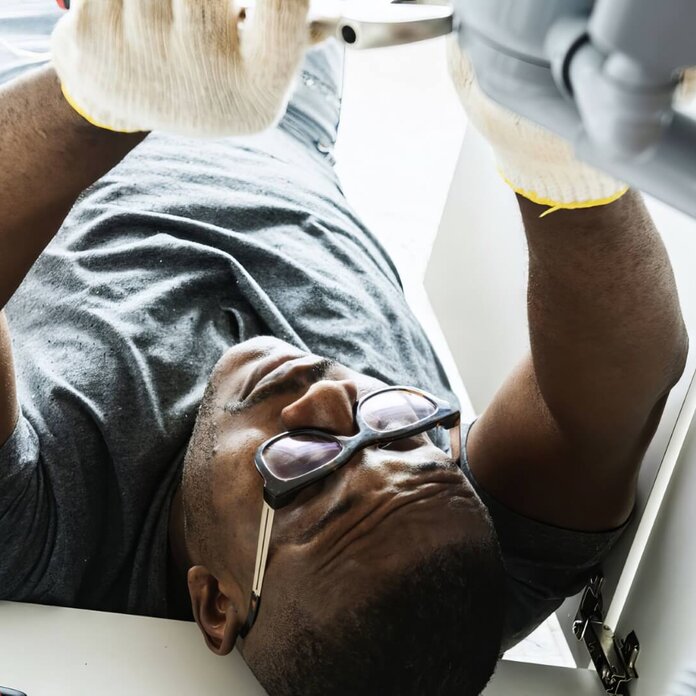Fast Solutions for Plumbing Emergencies: What to Do Until A Plumber Arrives
Fast Solutions for Plumbing Emergencies: What to Do Until A Plumber Arrives
Blog Article
In this article below you can find more reliable data regarding What to Do During a Plumbing Emergency.

Pipes emergencies can strike at any moment, triggering stress and anxiety and potential damage to your home. Whether it's a burst pipe, a stopped up drainpipe, or a dripping faucet, knowing how to manage the circumstance up until an expert plumbing professional gets here can conserve you from further complications. This short article offers necessary emergency situation pipes ideas to assist you minimize damages and reclaim control throughout a pipes situation.
Switch off the Water
The first step in any pipes emergency is to turn off the water system. For localized problems, such as a leaking faucet or toilet, turn off the valve near the component. When it comes to a significant leakage or ruptured pipeline, find your home's primary water shut-off valve and turn it off immediately. Knowing the area of these shutoffs in advance can save valuable time throughout an emergency.
Shut Off Your Hot Water Heater
In specific emergencies, such as a ruptured pipe, it's wise to shut down your water heater. This protects against overheating or damage to the device when water stops moving. Shut off the power supply to the water heater (electrical or gas) and let it cool to prevent potential threats.
Temporarily Quit a Burst Pipeline
A burst pipeline can cause significant water damages in minutes. To minimize the problem:
Call an expert plumber right away to address the issue completely.
Have an Emergency Pipes Kit
Prepare a fundamental pipes emergency set to handle minor concerns effectively. Your set needs to include:
Having these devices on hand can make a considerable distinction in your ability to handle emergency situations.
Unclog Drains Pipes Safely.
A blocked drainpipe can be an aggravating and untidy concern. Here's how to tackle it:.
If these methods don't work, prevent utilizing extreme pressure, as it might aggravate the clog.
Take Care Of Overflowing Toilets.
An overruning commode can create prompt disorder. Below's what you need to do:.
Address Small Leaks with Short-lived Solutions.
Tiny leaks can quickly come to be significant problems if left unchecked. Use these temporary solutions till expert help gets here:.
While these repairs aren't permanent, they can aid lessen water loss and damage.
Take Care Of Frozen Piping Very Carefully.
In colder environments, frozen pipes are a common emergency situation. If you presume a frozen pipeline:.
Know When to Call a Professional.
While quick fixes can assist temporarily, specific plumbing problems require instant specialist interest. Call a plumbing if:.
Immediately contacting a professional guarantees the problem is settled correctly and avoids additional issues.
Stop More Damages.
Taking fast action to decrease damage can save you money and time in the future. Below's how:.
Verdict.
Plumbing emergencies can be overwhelming, however with the ideal expertise and devices, you can take care of the situation effectively up until help arrives. By turning off the water, resolving tiny leakages, and utilizing momentary fixes, you can minimize damage and maintain your home safe. Bear in mind, these ideas are momentary services; always consult a qualified plumbing professional to manage the source of the problem. Preparation and quick reasoning are your finest allies in any pipes emergency situation.
8 Helpful Tips for Managing Plumbing Emergencies at Home
If your plumbing system hasn’t failed once, wait for it because almost everyone has a story to tell. Sometimes, it could be simple emergencies such as a leaking pipe, a blocked cistern, or even a big burst pipe. In situations like this, you need to have some handy tips to save you some money and from possible damages.
Take care of minor issues early.
Sometimes, you could have avoided an emergency by taking proactive measures while it was still early. Some major plumbing emergencies can be a result of an ignored minor issue. We recommend that you have items like plumbing tapes and other related items. A plumbing tape can allow you to manage minor leaks before the plumber arrives.
Cut off the water supply.
This tip is essential in almost any type of leakage problem. For problems like minor leakages in the toilet or kitchen, turn off the supply that takes water to the affected pipes. If the leakage is a major pipe, you must shut off the supply valve to the entire building. This will help you avoid flooding your home and neighbors if you share a flat.
Know your plumbing system
Folks typically move into a new apartment without understanding the water supply around the building. This can prove disastrous if a water emergency arises and the plumber is far away. The previous tip will prove useless if you don’t practice this one. More importantly, know where your water shut-off valve is located – you’ll need that knowledge to prevent potential home floods.
Have some common handy tools
There are lots of plumbing emergencies that you can handle without hiring a plumber. That’s why you must keep some tools available always. Some tools that you can use to fix simple plumbing emergencies easily include plumbing tapes, screwdrivers, thread seal tapes, plungers, pliers, tape measures, and rubber gloves.
Insulate your pipes from cold
You’ll save yourself from many plumbing expenses if you protect your water pipes from the cold. This is because of the harmful effects that cold weather can have on your pipes. During winter, your pipes can burst from being overly expected to freezing temperatures. So, make sure insulators are there to keep the pipes working correctly.
Avoid practices that will clog your toilet.
Many people indulge in practices that can damage the plumbing system of the entire building. One of these is when they use their toilet to dispose-off garbage. They flush all kinds of things, such as paper towels, bandages, hairs, female sanitary products, etc., down the toilet. This will block your toilet in the long run, incurring unnecessary expenditures. Dump such waste in the trash instead.
Check your dials regularly.
Sometimes, there could be leakages in your home without noticing them in time. So, constantly monitor your water meter dial. If the dial is reading when there is nobody using water, this is an indicator that there is leaking. Check for leaks immediately. Call a plumber as soon as possible if you can’t find any.
https://www.constructionplacements.com/8-helpful-tips-for-managing-plumbing-emergencies-at-home/

Hopefully you enjoyed reading our article on Expert Tips for Emergency Plumbing Repairs. Thanks so much for taking time to read through our blog post. So long as you liked our blog posting plz don't forget to pass it around. Thanks for being here. Don't forget to come by our website back soon.
Click Here Report this page